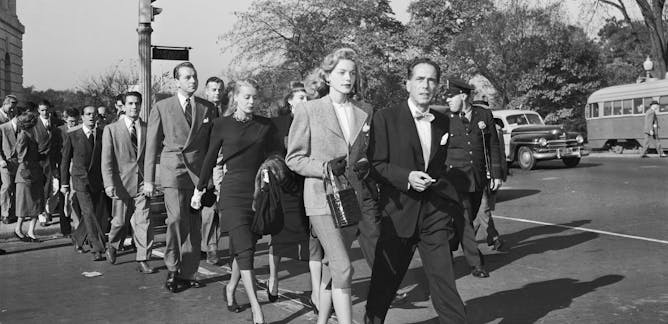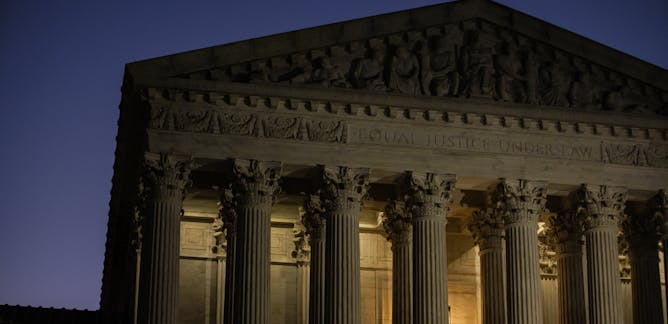|
If you’re the slightest bit interested in politics, you may have read, seen or heard the phrase “unitary executive” used by reporters and commentators recently.
It’s a pretty bloodless-sounding phrase. But what it describes is nothing less than “the most contentious and consequential constitutional theory of the past several decades,” writes political scientist Graham G. Dodds.
For some, the massive and consequential changes wrought this year on the shape and functioning of the government by President Donald Trump are “rooted in the psychology of an unrestrained politician with an overdeveloped ego,” writes Dodds.
It’s more than that, he says.
“Trump’s recent actions mark the culmination of the unitary executive theory,” developed by conservative legal theorists in the 1980s but now in full flower as the central part of Trump’s aim to “radically expand presidential power.”
Trump may well be cultivating court cases testing whether the judiciary will embrace the theory – “and thus permit him to do even more,” writes Dodds. “And the current Supreme Court appears ready to grant that wish.”
Also in this week’s politics news:
|

In a series of cases over the past 15 years, the Supreme Court has moved in a pro-presidential direction.
Geoff Livingston/Getty Images
Graham G. Dodds, Concordia University
Recent rulings indicate that the high court is leaning toward expanding the type of presidential power that is more emblematic of dictatorship than democracy.
|

FBI Director Kash Patel is sworn in to testify before the Senate Judiciary Committee on Sept. 16, 2025, in Washington, D.C.
Chip Somodevilla/Getty Images
Douglas M. Charles, Penn State
FBI director Kash Patel says he is making the bureau more accountable. Critics charge him with purging it of anyone not perceived as loyal to President Trump.
|

U.S. Marines park a Lockheed Martin F-35B fighter aircraft at Naval Station Roosevelt Roads in Puerto Rico on Sept 13, 2025.
Kendall Torres Cortés/picture alliance via Getty Images
Robert Muggah, Instituto Igarapé
US military buildup in the Caribbean has prompted Venezuelan President Nicolás Maduro to reciprocate with military drills.
|
|
|

Kathy M. Newman, Carnegie Mellon University
Even after the original group fizzled, many of its members were able to keep making films with progressive messages.
| |

Morgan Marietta, University of Tennessee
With partisan advantage, clashing perceptions of reality and revolutionary readings of the Constitution all in play, the Supreme Court’s cases this year reach far into American politics and culture.
|

Menika Dirkson, Morgan State University
Commuters have complained about SEPTA’s poor conditions and unstable funding for nearly a century.
| |

Matthew Redmond, Université de Lille
‘In America, the law is king!’ ‘No King! No Tyranny!’ For a skeptical Thomas Paine, every day was ‘No Kings Day.’
|
|
|